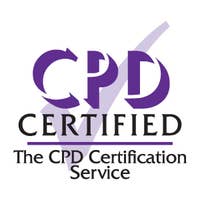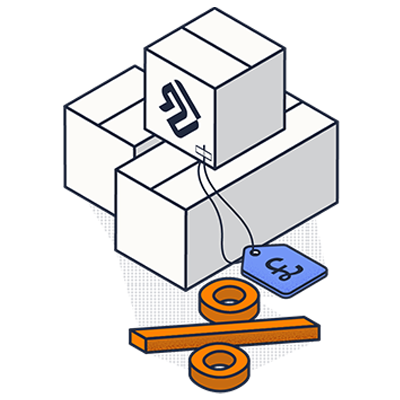Autism Awareness in Education Training
Quantity: 1

Duration 3 hours


100% online training
Start when you like
Learn on any device (desktop, mobile or tablet)
Instant assessment and result
1 learner per course
Train teams of all sizes
Bulk discounts starting at 10% off 10 courses
Pay by invoice with 30 day payment terms available (5+ courses)
Includes a 10% discount for 10+ courses
This course teaches those working in education settings how to effectively support autistic children and young people in their care. It explores what autism is, and looks at the concepts of neurodiversity and the autism spectrum, as well as addressing some common misconceptions.
You’ll learn that autistic individuals share common areas of difference, but will have their own profile of strengths and challenges. The course explores how those areas of difference might impact a child or young person. It will make you aware of the importance of understanding autism within education and give you knowledge of the diagnostic process. You will also learn how to use the Graduated Approach to provide effective, individualised support, and benefit from practical supportive strategies that can be used in educational settings.
100% online training
Access anywhere
Same day digital certificate
Printed certificate posted next working day
Full audio voiceover
Assessment retakes at no extra cost
Appraised by neurodiversity expert, Fintan J. O’Regan
Developed by education professionals
Accredited by CPD
Earn 3 CPD points on completion
Bulk discount for orders of 10+ courses

Save on our courses when you buy more training upfront. Lock in a better price now and access the training whenever you need to. You can mix and match any of our courses too and get the discount off your whole order.
10+ courses = 10% off
50+ courses = 20% off
100+ courses = 30% off
500+ courses = 40% off
By the end of this course you will:

Accredited by CPD
All of our courses are accredited by the CPD Certification Service as conforming to universally accepted Continuing Professional Development (CPD) guidelines.
Recommended renewal:
3 years
What does this mean? This certificate does not have an expiry date, however, based on industry best practice guidelines there is a recommended renewal period.
Our in-house Learning Designers develop all of our courses to give you and your learners the most engaging training possible.








What is autism?, why is understanding autism important?, inclusive practice and removing barriers, autism timeline, common misconceptions, the autism spectrum, describing autism, medical vs. social models, neurodiversity and neurodivergence.
Areas of strength, communication and language, differences in social interaction, repetitive interests, behaviours, and activities, monotropism, sensory differences, scenario exercises (Choose Your Path options), meltdowns, shutdowns and autistic fatigue, potentially co-occurring challenges, autism and mental health.
Pre-diagnosis, diagnostic criteria, masking, autistic girls and women, cultural differences and diagnosis, pathological demand avoidance (PDA), education, health, and care (EHC) plans.
Good autism practice in education, an inclusive whole-school culture, bullying, applying the Graduated Approach, an individualised approach, person-centred thinking tools, provision framework, working with parents and carers.
General strategies, managing uncertainty, anxiety and overwhelm, recognising and expressing emotion, managing uncertainty, supporting transitions, calming strategies, supporting communication and interaction, supporting sensory differences, supporting students with PDA.
Once you have completed the training, you will then take an online assessment to test your knowledge. This assessment will ask you 20 multiple choice questions with a pass mark of 80%. The answers are marked automatically, so you’ll know instantly whether you have passed. If you don’t pass first time, don’t worry! You can take the test as many times as you need with no extra charge.
This course is designed for anyone who works with (including as a volunteer) autistic children and young people, in an education setting, including teachers, teaching assistants, SENCos, early years providers, and childminders. It is also suitable for those supporting autistic children and young people in before and after school provisions, activities, and clubs.
Are you looking to support an autistic person in a non-educational setting? Our Autism Awareness course provides a general overview of autism non-inclusive of education settings and will provide more relevant guidance.

In partnership with
Fintan O’Regan
ADHD and Neurodiversity Expert
Fintan O’Regan (MA Education Management, PGCE, BSc Hons) is one of the leading Behaviour and Learning specialists in the UK. He is currently an ADHD, Neurodiversity and Behaviour Consultant for a number of schools and organisations as well as an associate lecturer for Leicester University, the National Association of Special Needs, The Helen Arkell Charity and the Institute of Education.
He is the former Vice Chairman of UKAP and the European ADHD Alliance. He has been the chairperson of the European ADHD Taskforce and is a current member of the Special Education Consortium, the SpLD Assessment Standards Committee, a full council member of the Council of Registered Schools for the Teaching of Dyslexia and the London Child and Development Centre.
Fintan was the Headmaster of an Academy that was regarded as the first specialist school within the UK for children with ADHD/ODD. He is an internationally acclaimed presenter and trainer in behaviour, learning and motivation working both within the Education and Health sectors. As well as providing his expertise to audiences within the UK, he has presented over 500 seminars throughout Europe, the Middle East, the Far East, Australia, New Zealand and North America.
He has published over 10 books including the; the T.E.S. award winning book Educating Children with ADHD (2001), How to teach and Manage Children with ADHD(2002), Surviving and Succeeding in SEN(2005).